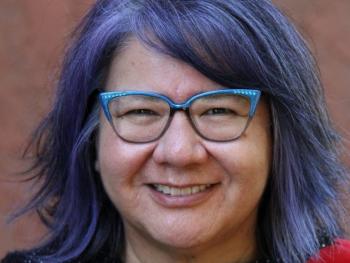Image Caption
Summary
Local Journalism Initiative Reporter
Windspeaker.com
Expectations are high as the Assembly of First Nations continues to push for action on the horrors committed in the residential school system, not only from the federal government, but also from the leader of the Catholic Church, Pope Francis.
“Certainly (the Pope) owes us an apology. The church owes First Nations people an apology for the atrocities that they committed against us. I mean the horrifying stories that we’ve all heard were perpetrated by nuns and priests within the Catholic Church, so they undoubtedly owe us an apology. And how that happens, we’re not clear on yet,” said AFN National Chief RoseAnne Archibald.
Northwest Territories Regional Chief Gerald Antoine will be leading the AFN delegation when the rescheduled trip is made to Vatican City at the end of March. Thirty delegates representing the AFN, Métis National Council and Inuit Tapiriit Kanatami are scheduled to meet with Pope Francis from March 28 until April 1.
The trip was initially scheduled for last December but had to be postponed due to health and safety concerns because of the Omicron variant of the coronavirus.
In a joint statement issued Feb. 1 from the three Indigenous organizations and the Canadian Conference of Catholic Bishops, it was announced the Pope was scheduled to meet with individual Indigenous delegations the week of March 28. A final audience with all participants is to take place on April 1.
There are two “key messages” the AFN delegation will be relaying, said Archibald.
The first is to have the Pope revoke the 1493 Doctrine of Discovery or terra nullius. It was a law that gave explorers the ability to claim ‘vacant’ land in the name of their sovereign, explains a blog published by Indigenous Corporate Training Inc., founded by Bob Joseph of the Gwawaenuk Nation. If land was not inhabited by Christians, it was considered vacant, and it could, therefore, be discovered, it explains.
“That’s one of the key things that is driving systemic, overt and covert racism,” said Archibald. “If you look at some historical documents, that’s one of them that needs to be revoked and replaced with something that actually acknowledges that First Nations people are valuable, that our cultures are vibrant and contribute, and have contributed, to health and wellbeing, not only of our nations, but of the planet as a whole.”
The AFN delegation will also be providing suggestions and recommendations on how the Pope can come to Canada and apologize to First Nations people.
Archbald is clear that the Pope is not being petitioned for an apology.
“It’s long overdue and so that’s the second key message around his apology,” she said.
However, she added, while Pope Francis’s visit to Canada is imminent, according to the Catholic Bishops, there is no firm indication that the visit will include an apology. There are also no dates set for when he will come.
The Catholic Church operated more than half of the residential schools in this country between 1831 and 1996 on behalf of the federal government. It is the only institution that has not yet made a formal apology.
The need for an apology from the Pope continues to be underscored with every new unmarked grave uncovered at former Indian residential school sites.
On Feb. 17, 54 possible burial sites, 42 at Fort Pelly residential school and 12 at the St. Philip residential school located near Kamsack, Sask., were the latest to be indicated by ground-penetrating radar.
Last summer, 215 unmarked graves at the site of the former Kamloops Indian Residential School in British Columbia were followed closely by 751 unmarked graves at the site of the former Marieval Indian Residential School on Cowessess First Nation in Saskatchewan. The uncoverings sparked horror in the Canadian and international public.
All four schools were operated by the Catholic Church or its entities.
Archibald said she will continue to press the federal government for “some kind of solemn gesture to recognize every time we do find our children in these unmarked graves.”
She wants that gesture to be the lowering of the Canadian flag.
“It is something I did request. It hasn’t been met,” said Archibald.
Canada has committed to lowering Canadian flags every year on Sept. 30, the National Day for Truth and Reconciliation, to remember the ongoing legacy of residential schools.
“In addition, following further engagement with the (National Centre for Truth and Reconciliation) and the Survivors Circle, the Government of Canada has also committed to raise the NCTR Survivors Flag indefinitely at Parliament Hill. We are working to confirm plans in the coming month,” said Justine Leblanc, spokesperson for the Office of the Minister of Crown-Indigenous Relations.
That’s not good enough, said Archibald.
“(There are) many more (unmarked graves) to come and every time that we do these recoveries we need to see some kind of solemn gesture from this government,” she said.
The Canadian flag was lowered to half mast upon the discovery by the Tk’emlúps te Secwe̓pemc at Kamloops last year and then raised prior to Remembrance Day following talks with the AFN. They were lowered again on Nov. 8 to mark Indigenous Veterans Day and on Nov. 11 for Remembrance Day. Since then, the flag has flown full-mast.
Local Journalism Initiative Reporters are supported by a financial contribution made by the Government of Canada.

